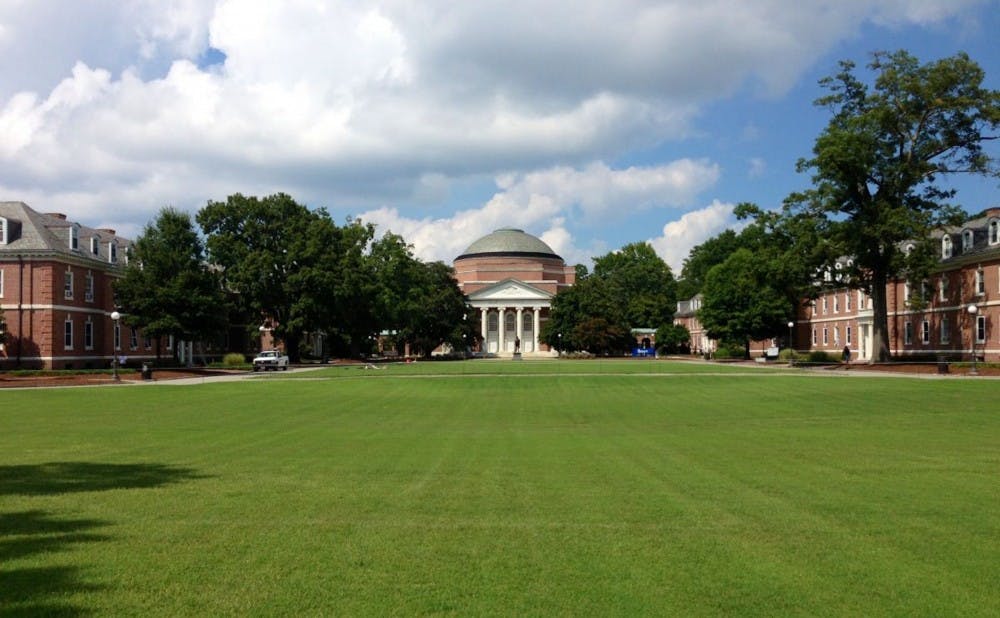An inscrutable mass of p-froshes descended upon Duke’s campus several weekends ago for the early decision Blue Devil Days. Congregating on the Bryan Center Plaza, the students buzzed with excitement for what will be their home for the next four years. While I watched their elation unfold, a sense of nostalgia stirred within me. I grasped that I was not so wholly removed from them, as it was all but ten months ago that I replied with an emphatic “Yes!” to Duke’s offer of admission. But as they anxiously await their journeys in this gothic wonderland, it’s hard to pinpoint the collective experience the class of 2023 envisions for themselves. Although I hesitate to posit too broadly, I believe it’s important to mold these perceptions early on. As soon as possible, actually.
Upon publishing my last column, little did I know that my exploration of Duke’s pre-professionalism epidemic would catapult me into a campaign of liberal arts advocacy. As I have described at length, there are broader and more looming factors that underlie preserving the integrity of higher education as a whole.
The discussion of pre-professionalism is timely. On February 12th, Vice Provost of Undergraduate Education Gary Bennett spoke before Duke Student Government Senate, extolling the purpose of a liberal arts education and how students can best optimize the limitless academic configurations available at Duke. And the very next day, the Arts and Sciences Council convened on the topic “Student Pathways, Diverging Enrollments, and the Liberal Arts.” While engagement in these dialogues is much needed, it’s time to start implementing solutions. Intent without action is futile.
The mindset of the class of 2023 is deterministic of one fourth of the undergraduate student body. After wishing the class of 2019 bon voyage, we will welcome approximately 1,700 new students this coming fall. The cycle repeats itself without pause, perpetually circling back to the formative first-year experience. Although eager and anticipating, the p-froshes already come to Duke with individualized schemas about the institution. As they carry these perceptions with them, it is important to ask: How will their ideas shift during the first several weeks and how will these changes impact how they acclimate to campus? Campus culture is self-sustaining. And to an extent, the pace of student life at Duke is set during O-week. Engulfed in a vortex of interaction and exploration, jittery first-years quickly get ensnared in the chaos of college life.
With proper intervention, it is possible to shape these determining views. There is inherent value in jumpstarting these conversations earlier on; that is, before the first-years feel the inescapable pull of conformity. But the goal that underlies any future initiative is to ensure that all students are informed about resources throughout their time at Duke. Expansion of pre-Orientation programs could be a start, offering students an intimate and immersive glimpse to Duke while building a sense of community before the tumult of O-week. But it’s not enough. The juxtaposition of limited resources against the vast student need is difficult to reconcile. And it’s unlikely that Duke would be willing to finance a meaningful pre-Orientation experience for all 1,700 of its incoming first-years. So while students should have more ease in the transition, a variety of factors inevitably disrupt a first-year’s ideal exposition to college.
But not all hope is lost. Last semester, I stumbled into the Academic Advising Center disoriented and in disarray from O-week. Precariously hunched over from my nearly 40-pound backpack while clutching a mountain of pamphlets and information sheets, I undoubtedly fit the classic trope of a confused first-year. On a whim, I had scheduled an appointment with a Director of Academic Engagement (DAE), hoping to check another box on my student network. I signed up for a consultation with Dr. Jules Odendahl-James, DAE for the Humanities.
Our conversation transcended niceties and empty advice. Instead we discussed finding intentionality in campus involvement and research. She nudged an enormous packet before me, filled with scholarship, fellowship, study abroad, co-curricular and interdisciplinary research opportunities. Noticing my complete bewilderment, she said with a smile, “You’ll get to know some of these things over the years.” Since that initial conversation, I have met with two other DAEs, sought out resources from the Wellness Center, scheduled weekly consultations with my advisor from the Academic Resources Center, and learned of a myriad of other places on campus, such as the Career Center, to seek help, guidance and affirmation.
This is the kind of network that I envision for every first-year: a nexus of mentors to cultivate self-confidence and a sense of direction. However, when contemplating Duke’s sprawling institutional reach, I’ve come to realize just how decentralized access to resources is. Accessibility is curated through niches, with the entryways embedded in Duke’s complex constellation of centers and departments. As a first-year struggling to navigate the maze of West campus alone, maneuvering these institutional networks is outright intimidating.
For students already pressured to adapt and overcome obstacles in Duke’s frenzied campus culture, expediency tends to supercede the effort it takes to kindle exploration. It takes personal responsibility and a sense of accountability for your own future; it takes a willingness to liberate yourself from inhibition and learn to take risks. But before this can happen, Duke needs to work to untangle the twisted wires so that first-years don’t feel like they “need an advisor for advising.”
Catherine McMillan is a Trinity first-year. Her column usually runs on alternate Fridays.
Get The Chronicle straight to your inbox
Signup for our weekly newsletter. Cancel at any time.

